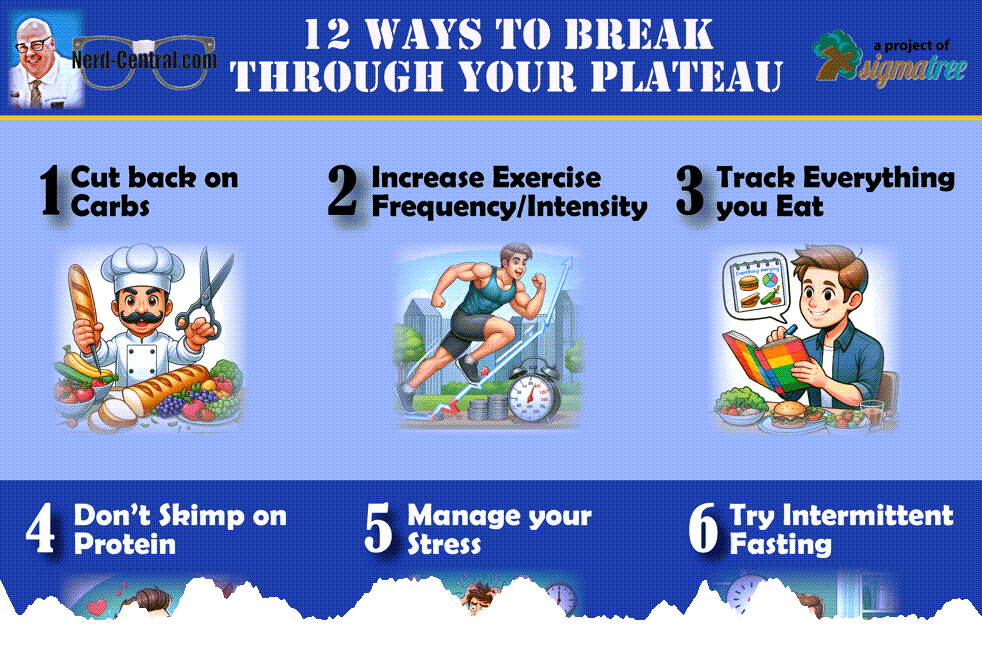
So… I seem to have hit a so-called plateau in my wellness journey. This one seems to be holding on pretty tight. I have always heard about plateaus during a weight loss journey but have really never understood them. Plateaus can be very frustrating and can have negative effects as you try to lose weight. Mainly on your determination and wheel power. When they linger they make you want to throw in the towel and give up.
So What is a Weight-loss Plateau?
Here is what I found out. A weight-loss plateau occurs when our brain senses that we’ve started to lose body fat and you are eating fewer calories than usual. Usually when you first start a weight-loss program you lose an initial amount of weight, you get excited. Success. But hold on.

The initial weight-loss is usually water. Once we actually start losing fat is usually when the plateaus start. There is a level of fat we have in our body known as our ‘set point’, and when we go below this level, our brain will respond. Our brain receives many hormonal signals from our body, and when it senses lower body fat levels, it will respond by slowing down our metabolism to preserve our remaining fat stores. This response from our brain is a protective evolutionary mechanism. It’s designed to prevent us from dying of starvation and surviving a famine.
So…having a weight-loss plateau is an absolute certainty if you’re currently on your weight-loss journey. In fact, you’ll probably have many plateaus.
Remember, it’s important to internalize that this is a normal and expected part of losing weight over the long term. It can be very easy to start second-guessing yourself and question whether you’re still doing the right things – particularly when the weight doesn’t seem to move for several weeks.
In some studies weight-loss plateaus can last as long as eight to twelve weeks. This is an incredibly long time, which is why it is often helpful to have additional support and reassurance during this time – otherwise, it’s very easy to give up.
So, how can we fight back? Below are 12 suggestions that may help the journey.
12 Ways to Break Through your Plateau
1. Cut back on carbs
Whether carb restriction leads to a “metabolic advantage” that causes your body to burn more calories is a question that continues to be debated among nutrition and obesity experts. That said, there is some evidence that eating a low carb diet may help reduce hunger. This may lead you to subconsciously eat less, making it easier to begin losing weight again without hunger or discomfort.

2. Increase exercise frequency or intensity
Your metabolic rate slows as you lose weight. As weight declines, the progressive reduction in metabolic rate can make continued weight loss difficult. However, exercise has been shown to help counteract this effect. Research suggests that when it comes to losing weight, fat, and belly fat, aerobic training is more effective than resistance training. Resistance training also has a lot of health benefits, so a combination of the two might be best for overall health.
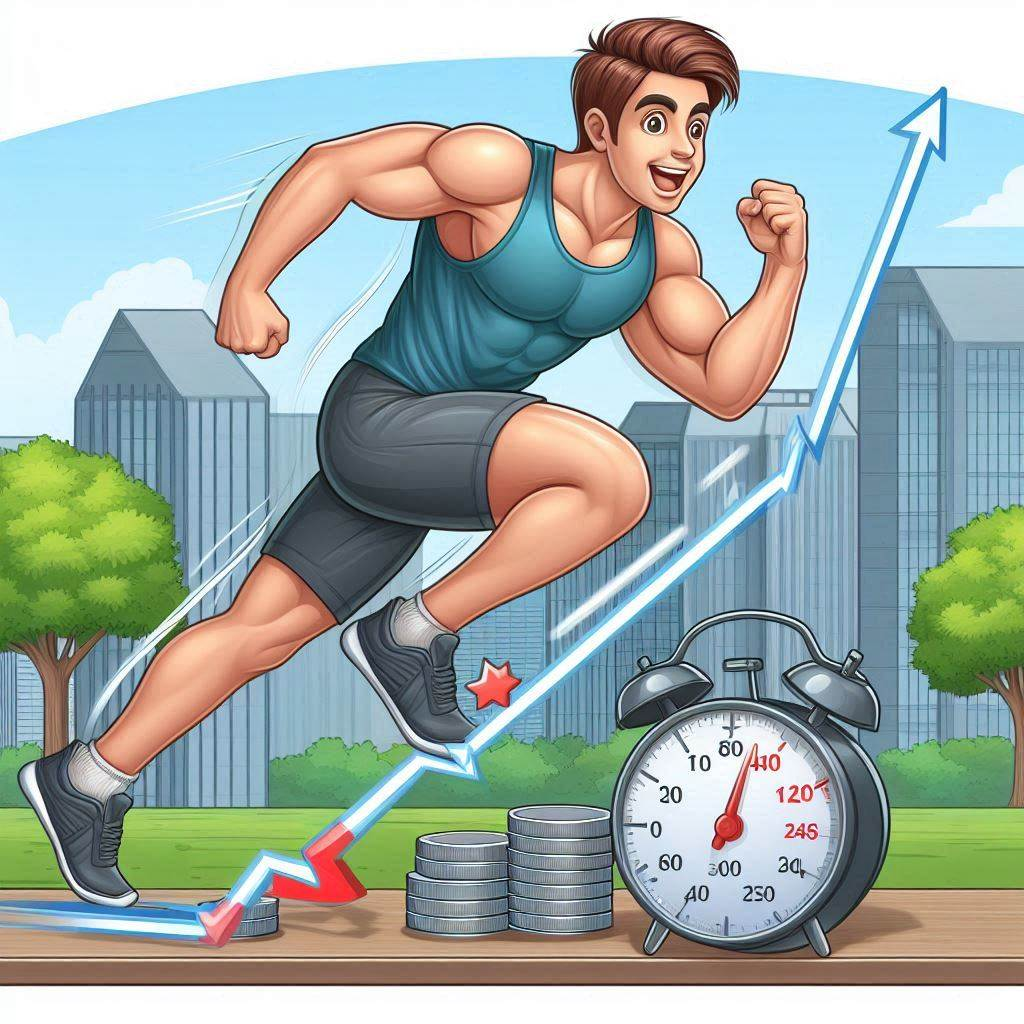
3. Track everything you eat
Research suggests people have a tendency to underestimate the amount of food they eat. That’s why tracking your calories and macronutrients — protein, fat, and carbs — can provide concrete information about how much you’re taking in. This will allow you to modify your diet if needed. In addition, research suggests that the act of recording your food intake alone may improve your weight loss efforts.

4. Don’t skimp on protein
If your weight loss has stalled, increasing your protein intake may help. First, protein boosts metabolic rate more than fat or carbs. This has to do with the thermic effect of food or an increase in metabolism that occurs due to the digestion of food. Protein digestion boosts calorie burning by 20–30%, which is more than twice as much as fat or carbs. Second, protein stimulates the production of hormones that help reduce appetite and make you feel full and satisfied.
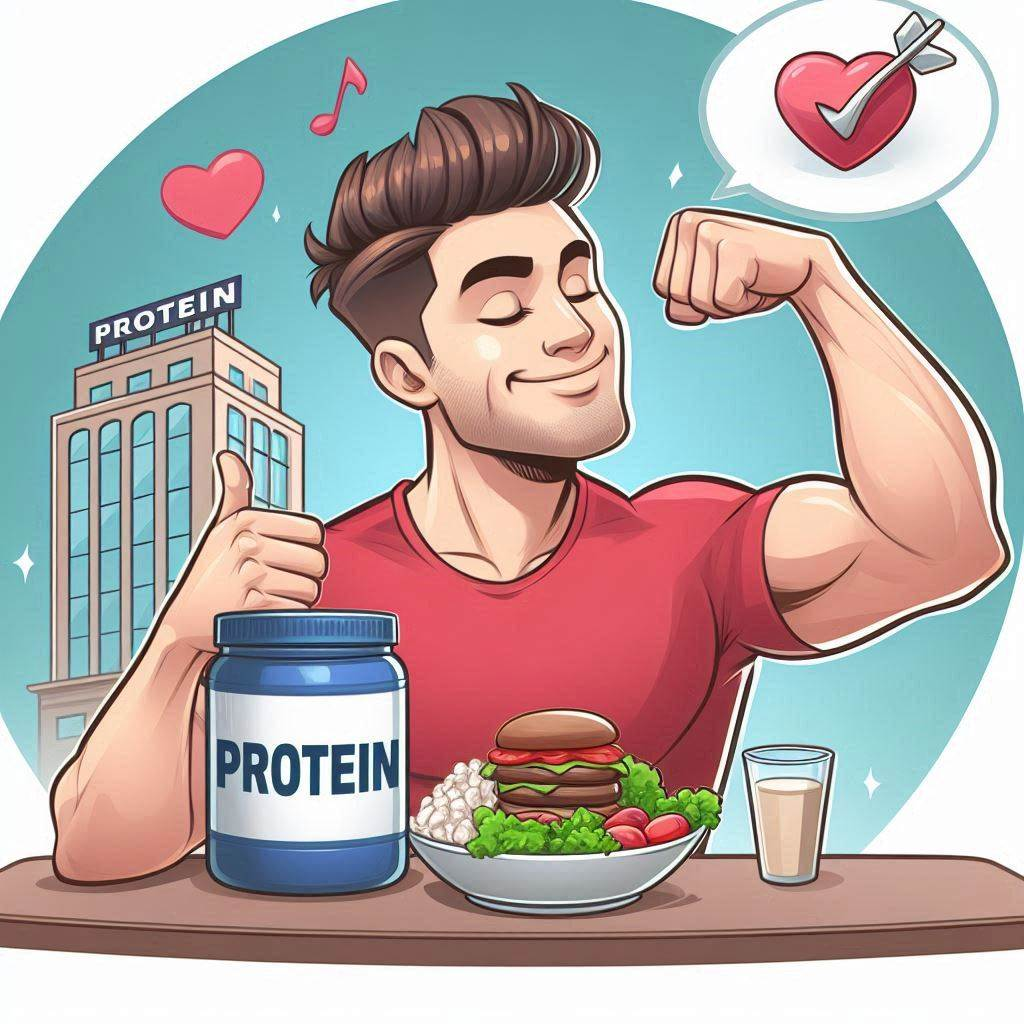
5. Manage stress
Stress can often put the brakes on weight loss. In addition to promoting comfort eating and triggering food cravings, it also increases your body’s production of cortisol. Cortisol is known as the “stress hormone.” While it helps your body respond to stress, it can also increase belly fat storage. Producing too much cortisol can make weight loss difficult, but research has shown that learning to manage stress can help promote weight loss.

6. Try intermittent fasting
Intermittent fasting has become very popular recently. It involves going for long periods of time without eating, typically between 16–48 hours. The practice has been credited with promoting the loss of body fat and weight.
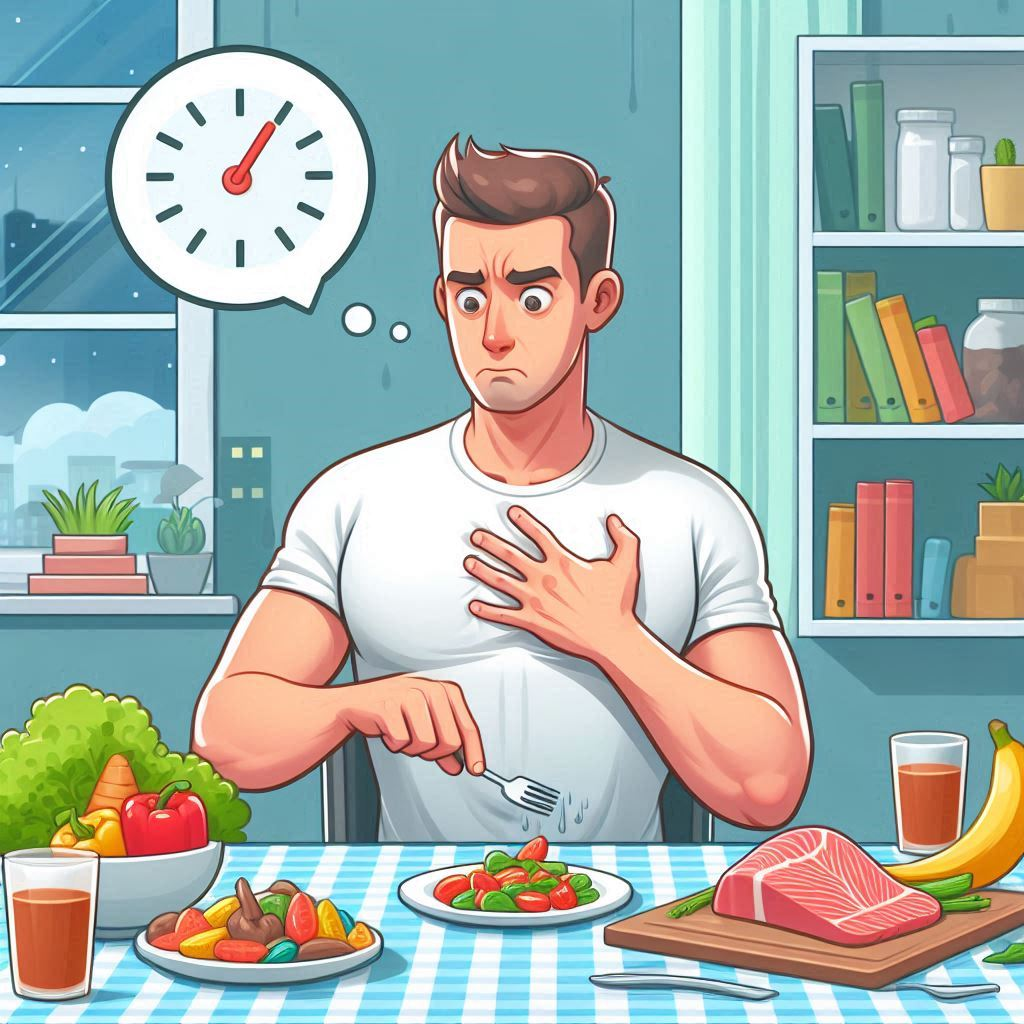
7. Avoid alcohol
Alcohol may be sabotaging your weight loss efforts. Although one alcoholic drink of wine, hard liquor, or beer usually contains only around 100 calories, it provides no nutritional value. In addition, you may have more than one drink at a sitting. Another problem is that alcohol loosens inhibitions, which may lead you to overeat or make poor food choices.

8. Eat more fiber
Including more fiber in your diet may help you break through a weight loss plateau. This is especially true for soluble fiber, the type that dissolves in water or liquid. To begin with, soluble fiber slows the movement of food through your digestive tract, which can help you feel full and satisfied. Another way that fiber may aid weight loss is by decreasing the number of calories you absorb from other foods.
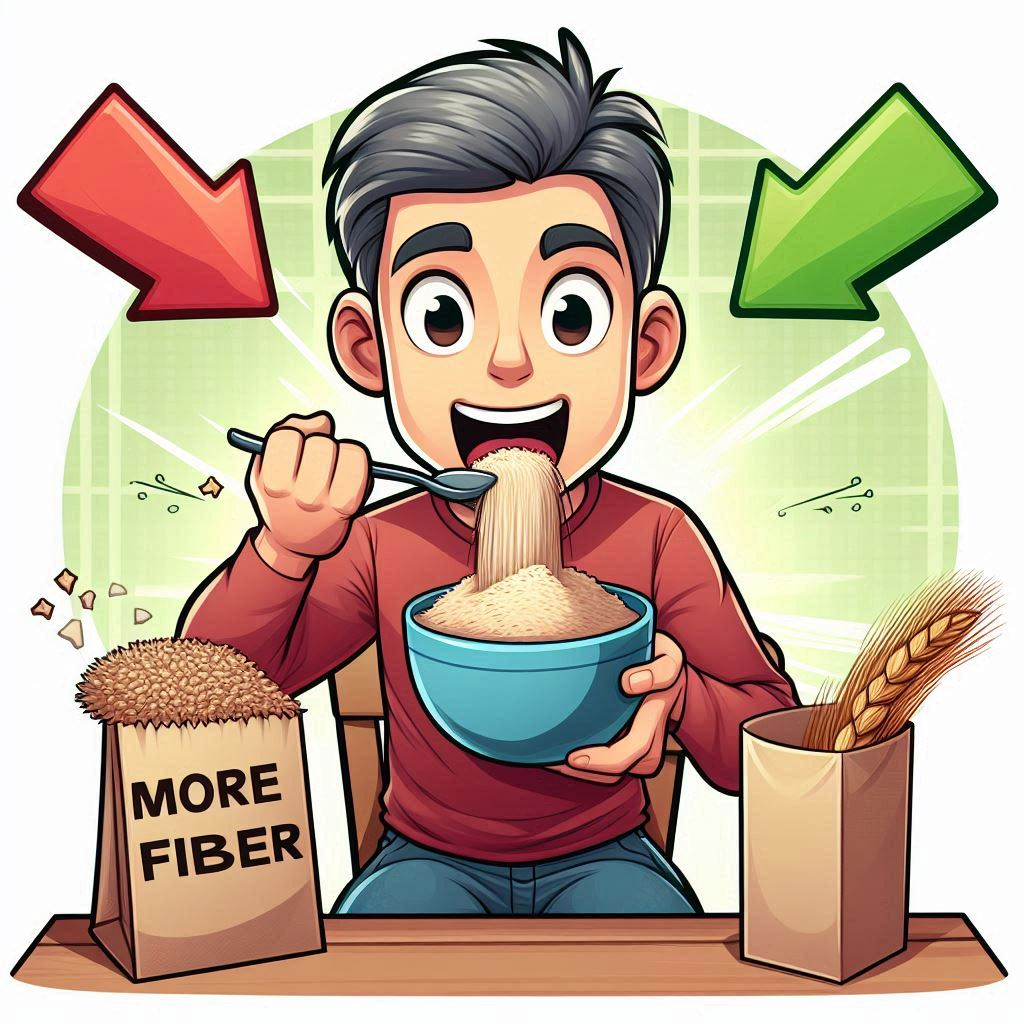
9. Drink water, coffee, or tea
While sugary beverages lead to weight gain, some beverages may help reverse a weight loss stall. Research has found that plain water can boost metabolism, which may translate into weight loss over time, especially in those who consume water before meals, which may help reduce food intake. Coffee and tea may also help your weight loss efforts. Green tea, in particular, contains an antioxidant known as EGCG (epigallocatechin gallate) that may promote weight loss. Moreover, research suggests that consuming caffeinated beverages can significantly enhance the metabolism-boosting and fat-burning effects of exercise.

10. Get plenty of sleep
Sleep is extremely important for good mental, emotional, and physical health. It’s also becoming clear that not getting enough sleep can lead to weight gain by lowering your metabolic rate and altering hormone levels to drive appetite and fat storage. To support weight loss and overall health, aim for 7–8 hours of sleep per night.

11. Eat vegetables at every meal
Vegetables are the ideal food for weight loss. Most vegetables are low in calories and carbs, high in fiber, and loaded with beneficial nutrients. In fact, research has found that diets that include lots of vegetables tend to produce the greatest weight loss.

12. Don’t rely on the scale alone
Scale reading may not always accurately reflect your progress, such as changes in your body composition. Rather than weight loss, your goal is actually fat loss. If you’re working out regularly, you may be building muscle, which is denser than fat and takes up less room in your body. So if the scale weight isn’t moving, you could be building muscle and losing fat, yet maintaining a stable weight. In addition, you may retain water for a number of reasons, including your dietary choices.
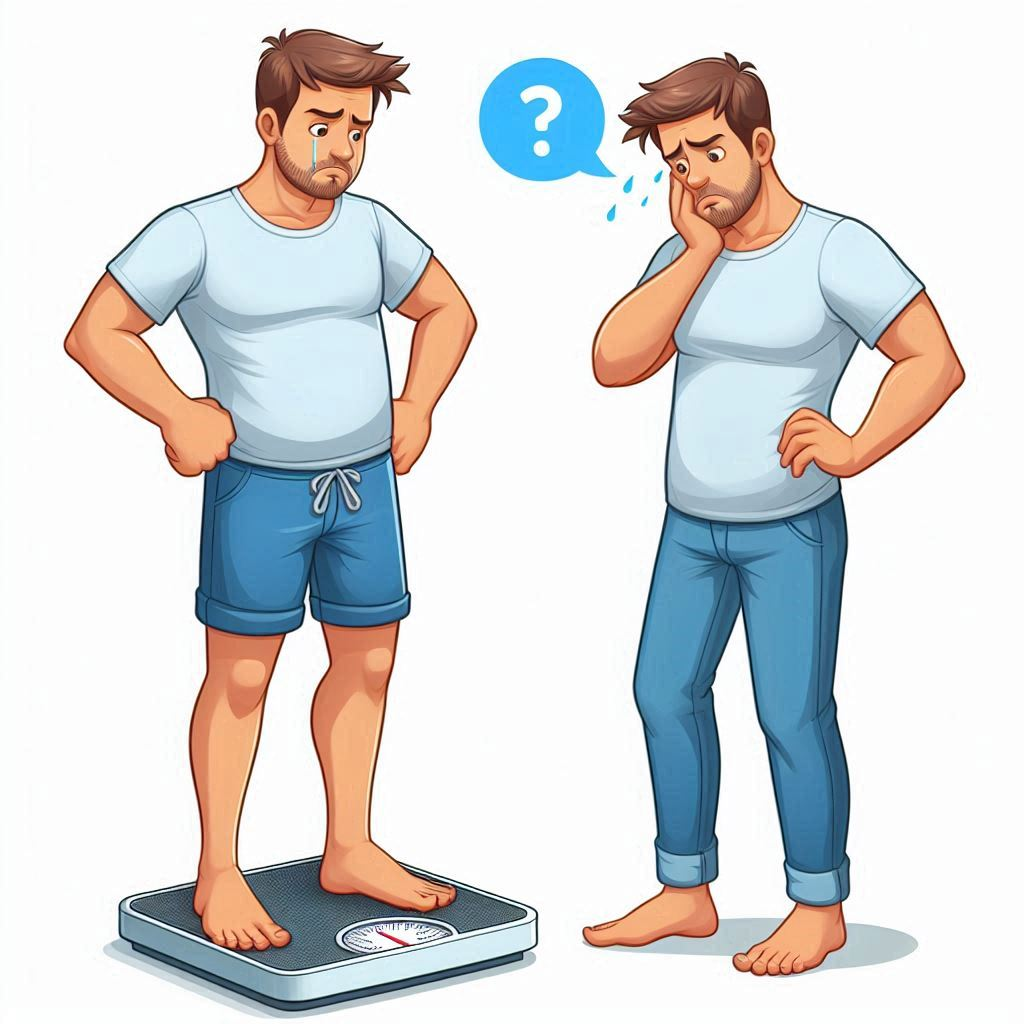
In Summary
Plateaus can be very annoying but once you understand them and internalize that you “Will” have them, simply put the strategies above into play and you will get past them.
Remember that your weight-lose is actually a journey and it will take time. Stick to your guns and you will reap the rewards.
See in the Infographic summarizing the 12 Ways to Break Through your Plateau in the Infographic section or use the following URL https://nerd-central.com/gallery/w8-my-personal-wellness-journey/
